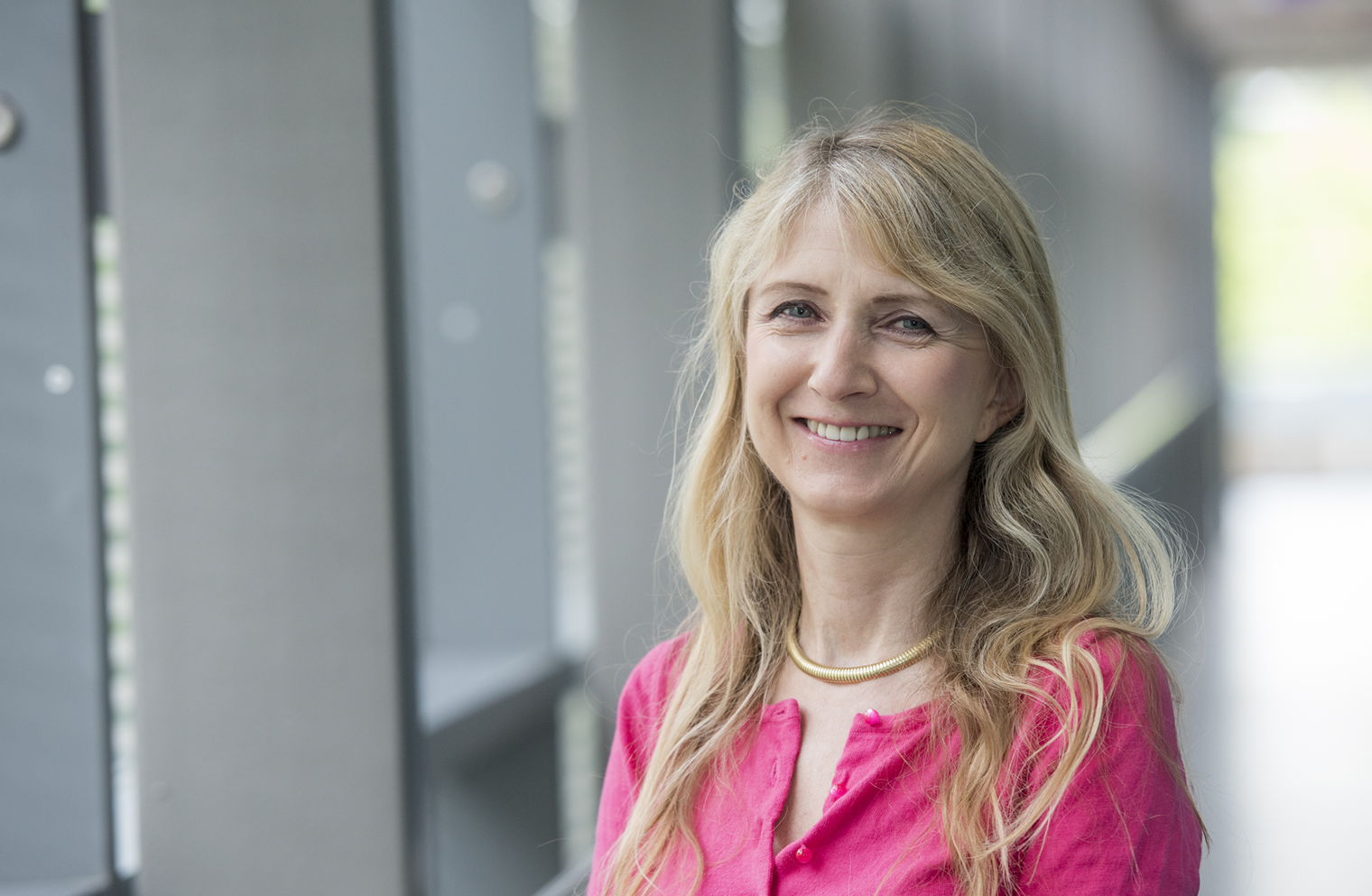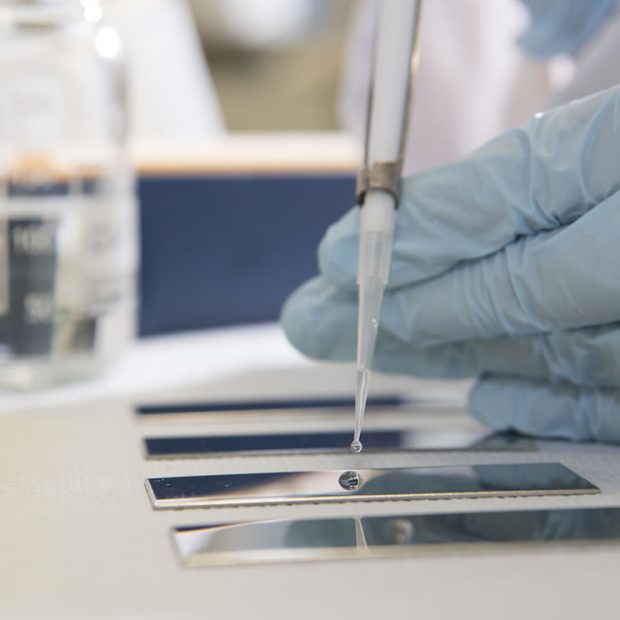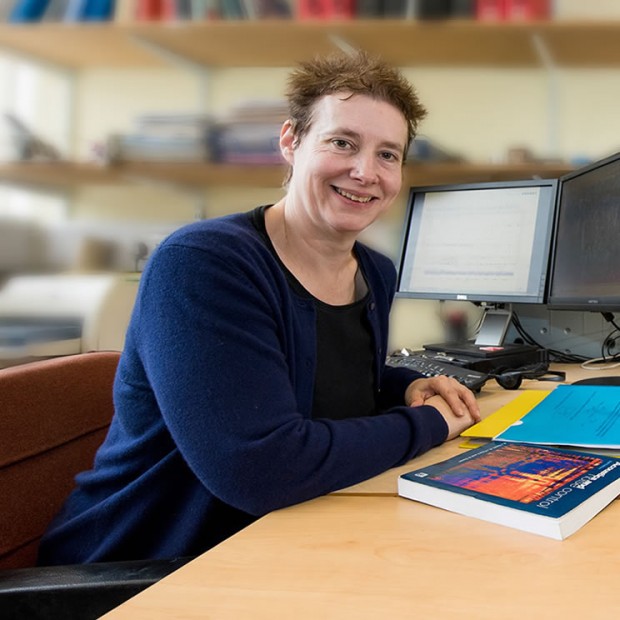Hartley News Online Your alumni and supporter magazine
Globally recognised for its evidence-based research, consistently well-placed in league tables, and producing an award-winning alumni community, Nursing at Southampton goes from strength to strength.
Nursing at Southampton ranks ninth in the world and third in the UK according to the QS World Rankings by Subject 2018. This recognition comes as no surprise to Professor Mandy Fader, Dean of Health Sciences at the University.
“It primarily is an acknowledgment of the world-rated research we do,” she confirms. Mandy points to the Macmillan Survivorship Research Group by way of example. The Group is hosted at the University and is the only centre funded by Macmillan focusing on research into cancer survivorship. In many cases, cancer is now a long-term condition rather than a terminal diagnosis, making it all the more important to consider good quality of life post-treatment.
People who are more confident about their treatment and their future tend to do well.
Mandy continues: “We have a funded programme of research with the Movember Foundation and Prostate Cancer UK in Nursing covering a number of things including physical and mental health following treatment. With prostate cancer outcomes, for example, we have been looking at the management of incontinence for men following prostate cancer surgery.” Products that help men to cope, such as a penile clamp and washable boxer shorts for men with night-time incontinence, are being explored.
Southampton has recently been involved in trials of a SMART watch that can measure the rate and depth of compressions when giving resuscitation. The University has received EU funding to work with the German Research Centre for Artificial Intelligence to trial technology, including the watch and smart glasses, which can give feedback to the wearer on resuscitation technique. Nursing students have been testing and providing comments on the technology, which it is hoped, could result in it being available for use by the public, in wards, and for training purposes. Both these projects (Prostate Cancer and SMART watch) were filmed for television in April.
Other focus areas include research into the workforce, a topical subject given press coverage of nurse staffing shortages. Studies are considering how many skilled nurses are needed to work on a unit with patients and at what level of reduced staffing patients’ lives start to be threatened.
Playing to our strengths
The sea change in government funding for nurses has allowed the University to play to its research strengths. The abolition of the NHS Bursary Scheme has not only meant that nurses now pay for their own tuition but that, without a cap on places, there are many other providers of basic graduate nursing degrees in Adult Nursing.
“As a result, we have chosen to focus more on undergraduate integrated masters programmes and PhD level provision in order to capitalise on our research activity and enable students to develop highly sought-after transferable skills of critical enquiry. We want to offer programmes that are much more research-intensive than other providers. Students will experience education that includes and is informed by more of the cutting edge of nursing than would be possible if we just focused on teaching,” says Mandy.
This focus provides opportunities for ambitious students to accelerate their careers and be better prepared for leadership roles within the NHS. The benefits of this approach have already been seen across other programmes at Southampton. One NHS manager feeding back on a graduate of the University’s Clinical Doctorate Research Fellowship Scheme stated that, while her accelerated path meant she had less experience, “She brought other skills that would help drive service development and a deeper understanding of important issues that impact on day-to-day service delivery.”
Award winner
Both before and after any course structure changes, Southampton has had no problem in attracting bright and talented students, as Cara Sturgess (BN Nursing 2017), a nurse practitioner at Ashurst Child and Family Centre, ably demonstrates. While studying, Cara won the national Cavell Trust Award. Amongst other elements, the judges were impressed with Cara’s description of her exposure work with a young male patient with anxiety.
“It had progressed very well in a short amount of time. [My patient] started off not being able to open his eyes when I was in the room and we ended up going out for coffee,” she explains. Cara won £1,500 to spend on an elective placement and chose to go the Philippines in order to experience a different healthcare system.
Cara joined the course aged 24 and found that she was in fact average age, with some students in their forties. However, she explains, mental health can appeal to people on a personal level at any age. “Sometimes either they or someone in their family has had difficulties, and they develop an interest in mental health or feel they want to give something back.” Far from being a barrier, Cara sees that studying later in life can be an advantage. “I’m glad that I went when I was older, as it meant I had more work and life experience,” she says.
Career paths
A new campaign is shortly to be launched by Southampton to attract more people – both men and women – who might not have considered nursing as a career.
“Many people don’t realise the potential for a career in nursing or that nurses are at all the highest levels of the NHS. Added to that, nursing itself is highly technical these days and requires an enormous amount of critical thinking skills. Nurses do now what junior doctors did 20 years ago,” says Mandy.
The campaign will be launched around International Nurses’ Day, which itself falls on the anniversary of Florence Nightingale’s birth (May 12th). The world’s most famous nurse would surely be proud of the expertise, capability and contributions made by today’s modern equivalent.




